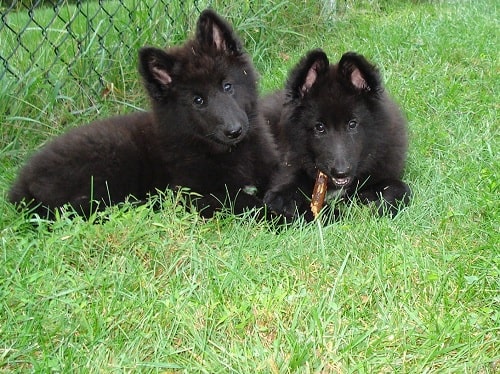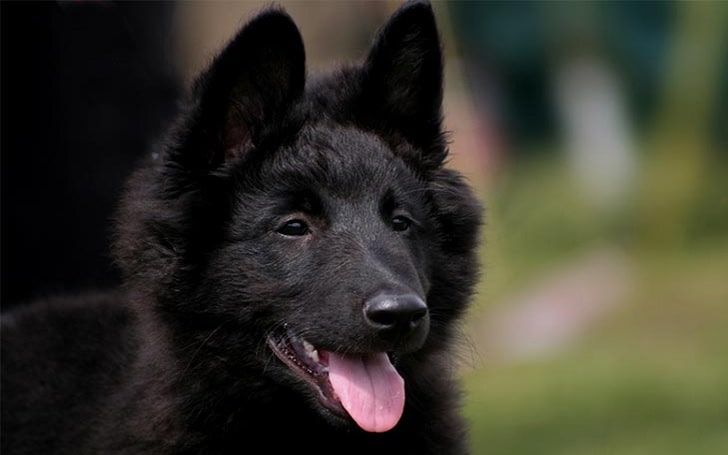Belgian Sheepdog Puppies
Belgian Sheepdog is a medium to the large-sized dog breed that was bred for the purpose of herding sheep. It was originated in Belgium and is of energetic, lively, and affectionate temperament.
In this article, you will learn about the puppies of Belgian Sheepdog and their behavior and development in different months.
Newborn
The newborn Belgian Sheepdog is a fragile and helpless little puppy. They are completely blind, deaf, and are toothless. They have to depend on their mother for everything as they cannot do anything on their own. Since they cannot generate body heat on their own, the mother keeps them cozy and warm. So, provide them with a warm place to be with their mother.
Always let the puppies be by their mother’s side and do not play touch them with bare hand constantly as your hand germs might transfer to them.
Neonatal Stage (0-2 Weeks)
It is the stage between birth to two weeks of their life. The mother takes care of them from cleaning their body to making them pee and defecate. She licks their body and cleans any dirt off them. The mother also licks their belly with stimulates the puppies to defecate and pee.

Image Source: Youtube-@ Ransomthesheepdog
At this age, the puppies should only have their mother’s milk. The milk consists of colostrum which is rich in antibodies that keep them safe from any kind of dangerous disease. The puppies need a lot of sleep for their proper growth and development.
Transitional Stage (2-4 Weeks)
The transitional stage is a very important stage in the Belgian Sheepdog puppy’s life. It is important because, at this stage, they for the first time open their eyes and are able to hear the sound around them. The eyes open between 10-12 days whereas the ears open between 16-18 days of their birth.
The puppies also start making their own vocabulary by whining, yelping, and barking. This way they communicate with their mother and other littermates. They also start walking a few steps and do their wabbly walk.
Socialization Stage (4-16 Weeks)
The socialization stage is the time where the Belgian Sheepdog puppies need to be socialized with different human beings and canines. Before taking them out for socializing with different people and canines, you need to leash train them first. As a herding dog, they have a high herding instinct due to which they might chase small animals or babies in the park. Therefore leash training is important.

Image Source: HipWallpaper
As they learn to walk on the leash, slowly expose them to different people and canines in the park. Introduce them carefully to everyone. This is also the time to start their basic obedience training.
The age starting from 8 weeks is the time for the Belgian Sheepdog puppies vaccination against DDHP, distemper, adenovirus, rabies, and medication for heartworm.
Juvenile Stage (3-6 Months)
It is the stage where the Belgian Sheepdog puppies lose their small puppy face and look more like an adult. They need to be provided advance training which includes lots of tricks and agility. As they are an active herding dog, they need both physical and mental challenges for their happy and healthy life.
The puppies need proper guidance and should be taken care of carefully. This is the stage where they are excited and are more independent. Leadership should be established at this age, so they become more obedient and respectful of its master.

Image Source: Herding Puppies Pictures
Adolescence Stage (6-12 Months)
Belgian Sheepdog is fully grown by this age and are physically and sexually matured. The female experienced her first heat about the age of six months but it is not good for their health to engage them in breeding or mating. They are not ready to mate or breed mentally and it might affect their health. So, it is best to wait till they are 18 months old which is when they are ready for both mating and breeding.
Change their puppy food to premium adult dog food. Provide them with a complete balanced diet to keep them healthy. Continue their training and involve them in vigorous physical exercise.
Visit Doglime for more about puppies behavior during different months.
Tags










